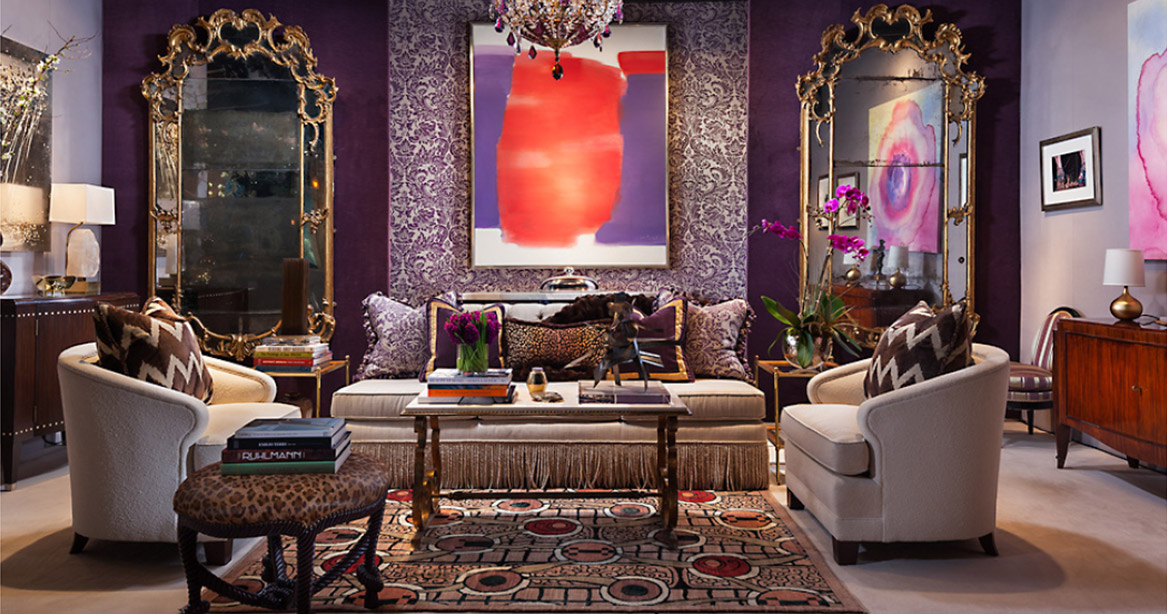For many years, the antiques industry ran on face-to-face connections in the real world, but as modern technologies continue to infiltrate every industry antique dealers are having to embrace digital ways of doing business. We asked four of the world’s leading antique dealers to tell us how they are successfully navigating today’s more virtual environment and, with the pandemic supercharging the shift to online, where they think the future lies.
Elaine Phillips Antiques
Buying antiques isn’t the same as buying baked beans, it’s personal and I think most people still want the human touch – Louise Phillips, chairman of Elaine Phillips Antiques

“Two years ago, I took the decision to close the family shop in Harrogate after more than 40 years and we now operate online, with an appointment-only showroom,” says Louise Phillips, chairman of Elaine Phillips Antiques and chairman of BADA since November 2020. “I see the website as a tool to show my clients what we have in stock and to demonstrate our signature aesthetic. The site’s not transactional – buying antiques isn’t the same as buying baked beans, it’s personal and I think most people still want the human touch – so, once someone has seen what they want on the website, we start a dialogue. Even during lockdown when, thanks to being more active on social media, we did business all over the world from Nairobi to Tokyo and Santa Fe, I spoke to every customer. That’s essential, it’s what makes the business.
“The internet has changed the antiques industry forever, but now we’re all spending so much time sitting in our digital Zoom boxes, I think that human connection will become more important than ever for many people. Are we really going to stare at screens and not touch the things we’re buying until they’re delivered by a courier? I don’t think so – I have clients who’ve bought things from me online during lockdown who are planning to come and collect the pieces in person as soon as restrictions are lifted. I’ve told them we’ll sit down together with a glass of wine and see if they properly connect with the piece.”
ShangriLa Antiques
This industry will never be totally online, but it’s definitely the future – Bob Montagne, co-owner of ShangriLa Antiques
“We launched as an online business about six years ago, selling Chinese porcelain to every country in the world from our base in Amsterdam,” says Bob Montagne, co-owner with his business partner Freek Pal of ShangriLa Antiques. “People buy from us because we have good items and we take care of our customers. You can still do that in the online world, even if you never speak to them – it’s all about being honest and the quality of the pieces. And social media means everything is out in the open so you have to treat people well. We have 19k followers on Instagram; if we ripped one of them off a lot of people would know about it!

“We put a lot of money into our photography, we describe the pieces in as much detail as possible and we take a great a deal of care to pack things properly. Storytelling is important, too. We use Instagram to promote what we do and who we are, as well as what we sell. Our USP is that we try to make porcelain a bit less dusty and old-fashioned, so we make little movies showing us unpacking boxes, or going to the coffee shop with an 18th-century cup.
“The pandemic has certainly changed things. In the Netherlands, lots of the auction houses didn’t even offer online auctions before this year. They were forced to make the move to survive and now they have, they’re discovering that there are so many more potential customers out there. This industry will never be totally online, but it’s definitely the future.”
Loveday Antiques
The pandemic has accelerated the shift to digital by a couple of years, but it was happening anyway – Alexander Loveday, director of Loveday Antiques
“When I launched the website in 2013, we had three physical shops. By 2015, I’d closed them all because it was clear that things were changing,” says Alexander, director of Loveday Antiques. “I noticed that customers were coming in having looked at the site first and, when I asked them if they would have made a purchase online if they could have, most of them said yes. Now the site is transactional and we have a by-appointment showroom so people can still come out and see the pieces in person if they want to.
“You have to be completely transparent online, that’s how you build good relationships with your clients. And because there’s so much competition, you have to be on top of your game. I spend a lot of money on photography and I research every piece I buy before it goes on the site. New clients will often visit the showroom and, when they see that everything is exactly as it’s photographed, it gives them the confidence to start buying straight off the website.
“Instagram has changed the antiques business massively. You used to have ‘runners’ – people who ran things round to dealers on spec – but that happens on Instagram now because they can sell something in five minutes from their phone. For us, Instagram is a massive hub for connecting with other dealers and decorators. It’s a community.
“The pandemic has accelerated the shift to digital by a couple of years, but it was happening anyway. Decorators especially are searching more online. But, while the business has changed in that there’s much more computer work, it hasn’t changed much in terms of customer relations – it’s still all about personal service and quality. If people like what they see and you treat them well, they’ll become loyal clients.”
Butchoff Antiques
If someone’s going to spend £35,000 on a cabinet, they’re going to want a conversation first. The website and our social media just give us more ways to do that – James Kaye, director of Butchoff Antiques

“We’ve had a showroom in central London since 1964 and launched our website about 20 years ago,” says James Kaye, director of Butchoff Antiques. “We have some clients who I’ve only ever spoken to on the phone or via email, others who come into the showroom and then go away and make a purchase remotely and others who come into the showroom having seen something on the website. The business is a collection of several moving parts working together.
“We work hard on the website to communicate the quality of what we sell. Good images and lots of background information are vital, and we use video too. We made three films about particularly special pieces just before we went back into lockdown and we’ve also created a virtual 360-degree tour of the showroom (pictured below) so people can walk around and really look at things. I think that’s the way forward. It’s much more transformative than some nice pictures of a table.
“Ultimately, we’re trying to build relationships. That’s what my uncle and father built the business on and I still think that if someone’s going to spend £35,000 on a cabinet, they’re going to want a conversation first. The website and our social media (we use Twitter and Instagram) just give us more ways to do that.”
Effect Magazine is brought to you by Effetto






